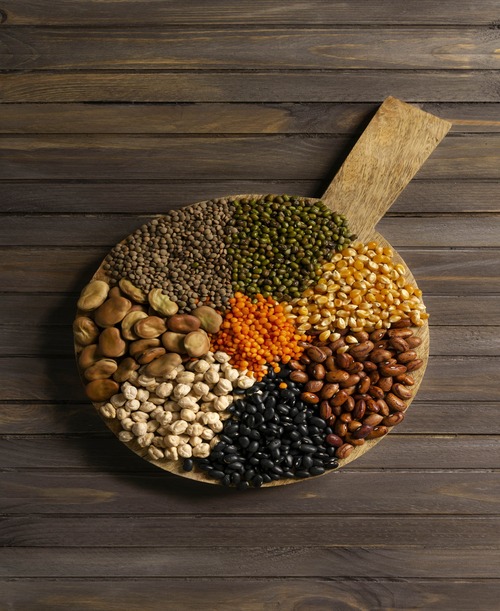Pulses
- Home
- Pulses
Pulses

PULSES
Pulses are actually a significant category of food, especially in many cuisines around the world. Pulses are a type of leguminous crop harvested solely for the dry seed, including beans, lentils, and peas. Here’s some more detail Pulses encompass a wide variety of crops, including chickpeas, lentils, dry peas, and various types of beans such as kidney beans, black beans, and navy beans. Pulses are highly nutritious and are a good source of plant-based protein, dietary fiber, vitamins, and minerals. They are particularly rich in folate, iron, potassium, and magnesium. Because of their nutritional profile, pulses are often considered a valuable component of a balanced diet, especially for vegetarians and vegans. Pulses are versatile ingredients used in a wide range of culinary applications. They can be cooked and consumed whole, mashed, or ground into flour. Pulses are used in soups, stews, salads, curries, dips, and various other dishes around the world.Consumption of pulses has been associated with several health benefits, including improved heart health, better blood sugar control, and weight management. Their high fiber content promotes satiety and helps regulate digestion. Pulses are also environmentally sustainable crops. They have nitrogen-fixing properties, which means they can improve soil fertility and reduce the need for synthetic fertilizers. Additionally, pulses typically require less water to grow compared to other protein sources like meat.Pulses are cultivated in many countries around the world, with major producers including India, Canada, China, and various countries in Africa and Latin America. They are also traded globally, contributing to food security and economic development.
Overall, pulses are an important and nutritious food source that plays a significant role in global food security, nutrition, and culinary traditions.
